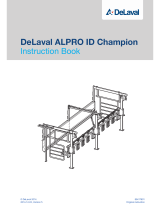
equipped with a leakage protector.
1. Keep the work area clean. Cluttered areas invite injuries.
2. Observe work area conditions. Do not use the machine in damp or wet
locations. Don’t expose to rain. Keep the work area well-lighted. Do not use the
machine in the presence of flammable gases or liquids.
3. Keep children away. Children must never be allowed in the work area. Do not
let them handle machines, tools, or extension cords. This machine can be used by
children aged 8 years and above and persons with reduced physical, sensory or
mental capabilities or lack of experience and knowledge if they have been given
supervision or instruction concerning the use of the appliance in a safe way and
understand the hazards involved. Children shall not play with the appliance.
Children shall not do cleaning and user maintenance without supervision.
4. Store idle equipment. When not in use, the machine must be stored in a dry
location to inhibit rust. Always lock up machines and keep them out of reach of
children.
5. Do not force the machine. It will do the job better and more safely at the rate for
which it was intended. Do not use inappropriate attachments to exceed the
machine's capacity.
6. Do not modify this machine or use it for an unintended purpose.
7. Dress properly. Do not wear loose clothing or jewelry, as they can be caught in
moving parts. Protective, electrically non-conductive clothes, and non-skid
footwear are recommended when working. Wear restrictive hair covering to
contain long hair.
8. Maintain machines with care. Keep them sharp and clean for better and safer
performance. Follow instructions for lubricating and changing accessories.
Inspect machine cords periodically and, if damaged, have them repaired by an
authorized technician. The handles must be kept clean, dry, and free from oil and
grease at all times.
9. Disconnect power. Unplug the machine when not in use.
10. Avoid unintentional starting. Be sure the switch is in the Off position when not
in use and before plugging in.
11. Stay alert. Watch what you are doing, and use common sense. Do not operate
any machine when you are tired.
12. Check for damaged parts. Before using any machine, any damaged part























